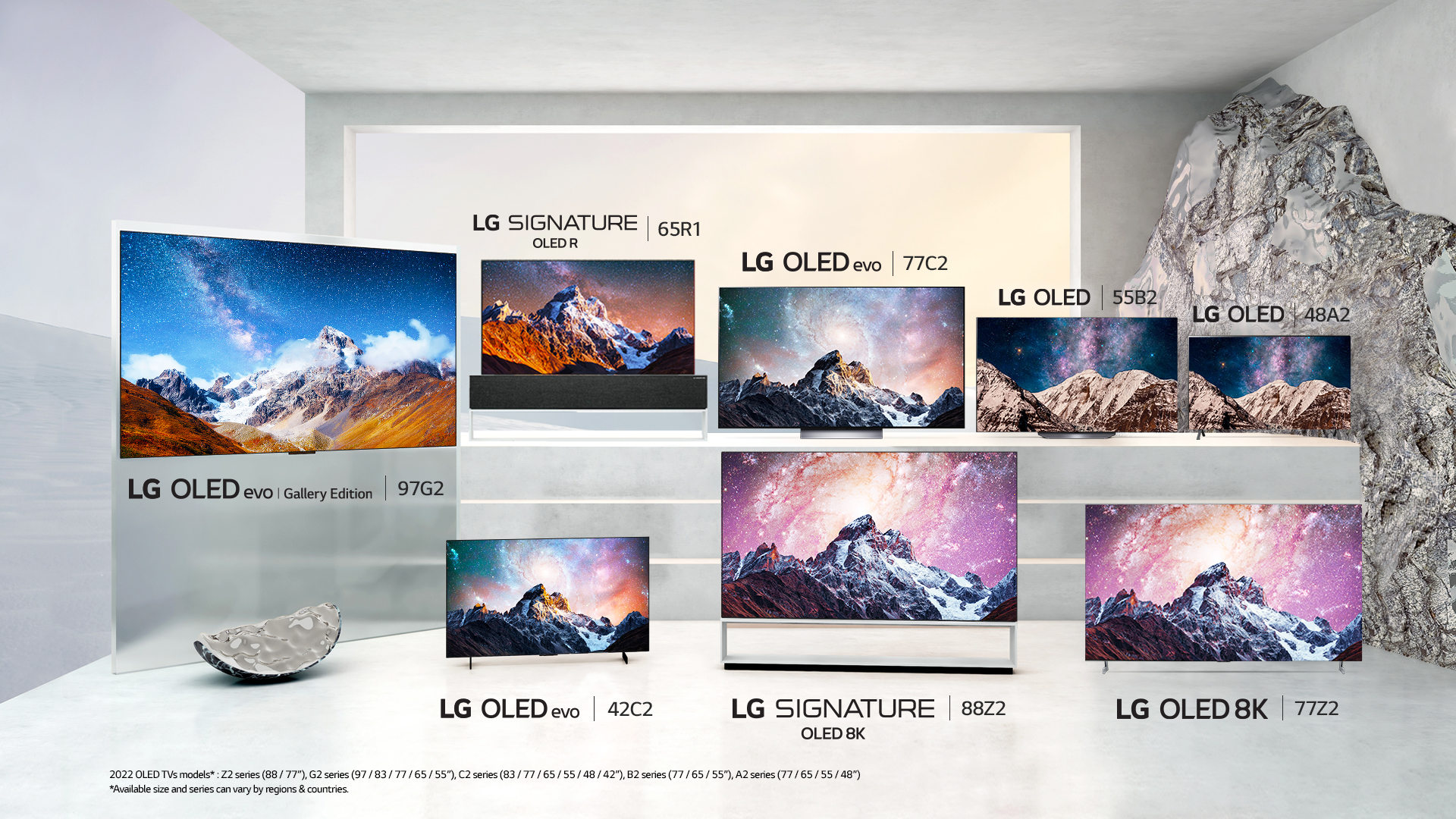
There’s actually a difference between the 42-inch and 55-inch LG C2 OLED, and it’s not as simple as them being two different sizes… OK, there’s that too, but it’s not the only difference.
LG has confirmed that while the 42- and 48-inch models use common elements of the larger sizes, including the Alpha 9 Gen. 5 processor, due to the pixel pitch, there's no major gains in brightness vs. non-evo models.
In essence, the pixel pitch (i.e. the density of the pixels in relation to the resolution of the TV) of the 42-inch and 48-inch C2 OLEDs is so high that it prevents them from getting the brightness boost that the 55-inch and above models get from Evo.
In practice, LG says, there’s about a 20% difference in brightness between last year’s C1 OLED and this year’s C2 OLED, which the smaller models don’t benefit from.
What’s the difference between LG OLED Evo and other OLED panels?
When we talk about LG OLED Evo technology, we’re referring to LG Display’s advancement in panel technology that allows OLED TVs to get brighter than they could previously.
LG began using the new OLED Evo panels in last year’s LG G1 OLED and announced back at CES 2022 that the upcoming C2 Series would be getting them as well.
Since then other OLED TV makers have started to source those panels and created their own version of Evo technology (see: Philips’ OLED EX on its 2022 models) - but it seems like LG still has the wider range of models if you count its smaller display sizes.
Get daily insight, inspiration and deals in your inbox
Sign up for breaking news, reviews, opinion, top tech deals, and more.
We’ve yet to go hands-on with the TVs, but we’ll be excited to see how much has changed between last year’s excellent LG C1 OLED and this year’s new C2 models.
- LG C2 OLED vs LG G2 OLED: which 2022 LG TV should you choose?
Nick Pino is Managing Editor, TV and AV for TechRadar's sister site, Tom's Guide. Previously, he was the Senior Editor of Home Entertainment at TechRadar, covering TVs, headphones, speakers, video games, VR and streaming devices. He's also written for GamesRadar+, Official Xbox Magazine, PC Gamer and other outlets over the last decade, and he has a degree in computer science he's not using if anyone wants it.
